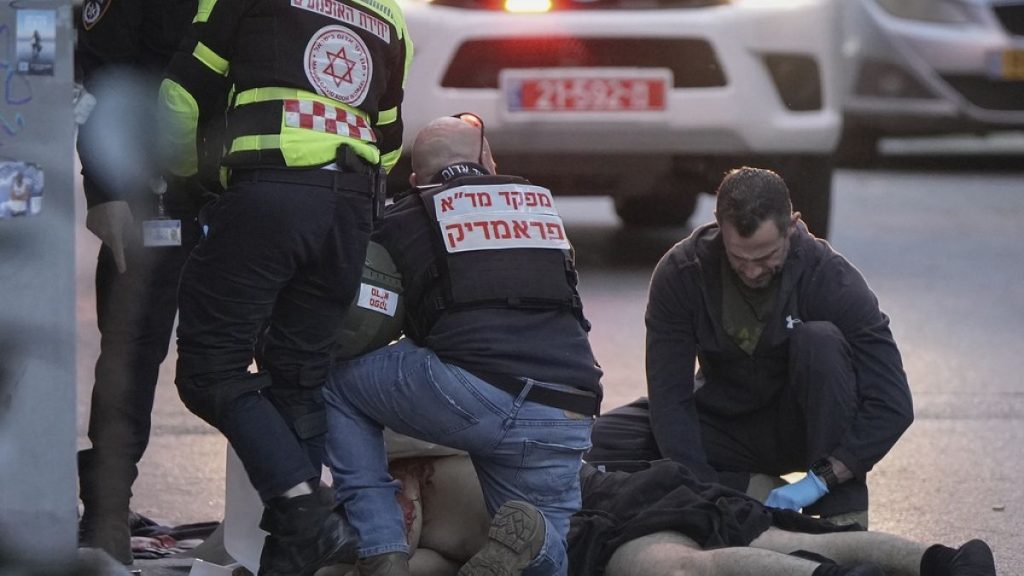The tranquility of a Saturday afternoon in central Tel Aviv was shattered by a stabbing attack that left one individual seriously wounded. Israeli police swiftly responded to the scene, initiating an investigation into the incident. A passerby, witnessing the unfolding violence, bravely intervened, shooting the attacker. The assailant’s condition was reported as critical by Magen David Adom, Israel’s emergency medical service. While police withheld the attacker’s identity, preliminary assessments suggested the stabbing was a terrorist act, a grim reminder of the ongoing tensions in the region.
The attack occurred against a backdrop of escalating violence between Israelis and Palestinians, particularly in the wake of the Israel-Hamas war. The conflict, spanning the past fifteen months, has witnessed a surge in attacks targeting Israelis, including stabbings, shootings, and car-rammings. These incidents have occurred across Israel and the occupied West Bank, fueling a cycle of violence and retribution. The latest stabbing in Tel Aviv adds another layer of complexity to an already volatile situation, exacerbating fears and anxieties within the region.
Adding to the day’s tensions, Houthi rebels launched two missiles towards Israel. While the connection between the stabbing and the missile launches remains unclear, the timing of the events further heightened regional instability. Israel’s ongoing conflict with Hamas, coupled with the external threat posed by the Houthis, creates a precarious security environment. The convergence of these events underscores the challenges facing the region and the potential for further escalation.
The stabbing in Tel Aviv is not an isolated incident but rather part of a broader pattern of violence that has plagued the Israeli-Palestinian conflict for decades. Palestinian attacks, often driven by political grievances and a sense of desperation, have targeted Israeli civilians, creating a climate of fear and insecurity. Simultaneously, Israeli military operations in the occupied territories, including near-nightly raids, have led to clashes with Palestinian militants and civilian casualties. This cycle of violence has deepened the mistrust and animosity between the two sides, hindering efforts to achieve a lasting peace.
The surge in violence has been accompanied by a disturbing rise in attacks on Palestinians by Israeli settlers. These attacks, often carried out with impunity, have fueled tensions and further complicated the conflict. The international community, including the United States, has expressed concern over the increasing settler violence, with the US even imposing sanctions in response to the escalating situation. The lack of accountability for these attacks has further eroded trust and undermined efforts to de-escalate the conflict.
The ongoing conflict has taken a devastating toll on both Israelis and Palestinians, with countless lives lost and communities shattered. The cycle of violence has perpetuated a sense of hopelessness and despair, hindering efforts to build a sustainable future. Finding a path towards peace requires addressing the root causes of the conflict, including the occupation of Palestinian territories and the lack of a viable political solution. The international community must play a more active role in promoting dialogue, fostering reconciliation, and holding all parties accountable for their actions. Only through sustained efforts to address the underlying issues can there be any hope of breaking the cycle of violence and achieving a just and lasting peace in the region.














